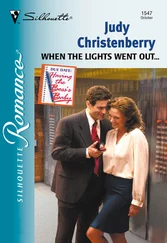Then, her eyes never leaving Richard Marshall’s face, she began to caution him. “You don’t have to say anything. But it may harm your defence if you do not mention when questioned something which you later rely on in court. Anything you do say may be used in evidence.”
Marshall stared right back at her. His eyes remained as unusual as she remembered them; clear, very pale blue, and just like those of his two little daughters. Suddenly an image of those two small frightened faces all those years ago flashed unwelcomely before her. She still believed that she, and she personally, had let those children down. She knew she was not alone in that. It didn’t help. She could feel tears pricking — and that certainly would not help. She had a job to do. There was so much that could never be put right, but at least she could do her best to seek some sort of justice for Lorraine and Janine and their mother. She made herself concentrate all her intentions on what was happening now. On Richard Marshall.
He no longer looked panic-stricken, but rather more as if he were calculating the odds against him. She told herself again that it wasn’t Marshall’s style to do a runner or to resist arrest. As a natural conman he was far more the sort to bluff, to rely on his wits to get him out of trouble. Karen got the feeling he was quite methodically working out which course of action to take next.
Still holding the battery at chin level, still staring directly at Karen, Marshall took a further step up onto the deck of Wessex Lady until he was standing in full view in the cockpit, towering above her.
Fleetingly it occurred to Karen what a strong man he still must be. And at the same time she thought, not for the first time, how terrifying it must have been for his wife, so much smaller than him, and his little children, to have been faced with him in a violent mood.
Marshall took a pace forward as Karen finished the caution. She had to motion again for the officers accompanying her not to react. Her eyes never left Marshall’s face. Eventually she was rewarded with a look of resignation. Very slowly, and in a totally controlled manner, Marshall began to lower the battery onto the deck in front of him. He did not speak.
“In lay terms, you’re nicked,” said Karen, in the same laconic voice Marshall had used earlier. Marshall did not reply.
“I want you to move very slowly off the boat,” Karen instructed.
Marshall did so, still without comment. His face was very slightly flushed, his eyes downcast now. He looked sullen more than anything else. Karen quite liked that. This was, after all, a man whom she was quite sure had literally got away with murder for twenty-eight years.
When he was eventually standing on the walkway alongside her, pointedly avoiding her gaze now, she half-turned to Phil Cooper.
“Right, cuff ’im,” she instructed. And she could do nothing to prevent the slight note of triumph which crept into her voice.
As the handcuffed Marshall was led to the waiting cars the young woman from the marina office, looking quite distraught, ran after him, calling out: “Ricky, Ricky, what’s going on?”
Marshall glanced at her only briefly, then looked away. He said nothing. But maybe there was something in that glance that the girl recognized. Certainly she backed off straight away.
Phil Cooper, standing alongside DC Smiley, watched her with interest until, with one last anguished look at Marshall over her shoulder, she retreated out of sight into her little office. He returned his gaze then to Marshall as, in the custody of Karen Meadows and the other three police officers, he was loaded into one of the two waiting cars. The detective superintendent sat in the front of the blue saloon alongside DC Tompkins, the driver, while Marshall was sandwiched between the two uniformed men, PCs Brownlow and Richardson, in the back.
Cooper felt as if his eyes were riveted to the car as it moved slowly across the marina car park and then turned left out on to the main drag. He didn’t have the personal long-term involvement of his superintendent, but like almost everybody in the Devon and Cornwall Constabulary, certainly everybody in Torquay, this case really mattered to him, as Karen had realized at once. Cooper had two little girls he doted on. Ever since the skeleton of Clara Marshall’s body had been discovered, Cooper had found that when he thought about Marshall’s children, which he could not help doing a lot, he pictured them inside his head with his own daughter’s faces. It was not pleasant, not pleasant at all.
Phil Cooper, like all his colleagues, was also very aware of how important this one was to the Devon and Cornwall Constabulary. It was pretty devastating for police officers to have been sure for all this time that a man was guilty of treble murder and to have been unable to do anything about it.
Well, they’d got him now. And it was all their jobs to make sure that Richard Marshall remained well and truly got, as it were.
The detective superintendent had asked Phil and DC Ronald Smiley to stay behind and make some check calls around the marina and in the Poole and Bournemouth area. Phil Cooper knew well enough what was required. He and Smiley needed to build a profile of Marshall as he was today.
They needed to talk to people who knew Marshall, particularly anyone who might have any kind of new take on the man. And the obvious place to start was with that girl in the marina office.
Any kind of invasion by a team of half a dozen police officers is likely to be disruptive and distressing, at home or in the workplace, but Cooper had taken careful note of the girl’s reaction as Marshall had been led away. She had looked both shocked and upset. And considerably more so, Cooper somehow suspected, than would have been the case had Richard Marshall merely been her employer.
Cooper knew well enough of Marshall’s reputation as an inveterate womanizer. And by all accounts a highly successful one, reflected the detective, the very thought of which made him uneasy. The young woman looked to be in her early to mid-thirties, certainly a good thirty years younger than Marshall but that, Cooper reckoned, would not stop a man like him.
Gesturing for Smiley to accompany him he led the way back into the marina office. The young woman was standing just inside, by the window. Cooper had been unable to see her but he guessed that she too had watched the unmarked police car containing Richard Marshall leave the marina complex and turn onto the main drag en route for Dorchester, and then on past Honiton and Exeter to Torquay.
As Cooper and Smiley entered the office she quickly turned away, walked over to her desk and sat down, sweeping back her long bright chestnut hair with one hand. She was unusually tall, but she had quite a small tight-lipped face, Cooper observed. She also had a slightly sulky look about her, without which, the detective sergeant thought, she would have been rather pretty. The young woman contrived to stare straight ahead while ensuring that she did not look directly at either of the two police officers.
“If you’ll excuse me, miss, I think we’d better have a word,” began Cooper, in the deceptively deferential manner he was inclined to adopt at the beginning of an interview. As he spoke he pulled up the one other chair in the little room, leaving Smiley to perch against a box of what seemed to be engine parts.
Cooper at first merely checked details, like the young woman’s name and the precise nature of her job. And as he questioned her an intriguing, but not entirely unexpected, scenario began to emerge.
“My name is Jennifer Roth and I’m Ricky’s personal assistant,” she said.
Cooper resisted the temptation bluntly to ask straight away if that was all she was. Instead he stuck to the gentle approach. He was that sort of policeman. He believed that softly softly got the best results. It certainly seemed to work for him, anyway.
Читать дальше












